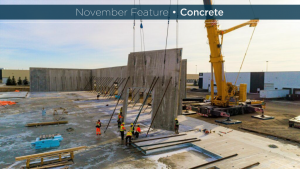On March 16, Marty Walsh, Boston’s mayor, ordered the shutdown of construction in his city for at least two weeks due to the COVID-19 pandemic. The only permitted construction activity will be emergency work at public facilities and repairs to utilities.
In Toronto meanwhile, building permit intakes, requests for information, filing of complaints and reports, and building inspections have been suspended until April 5, effectively slowing down work on some projects. Only 24/7 emergency building inspections will continue, the City’s announcement says.
These events raise an aspect of force majeure rarely seen.
Unions too may be forced to decide whether to pull workers from sites and risk breaching collective agreements or consider matters from a health and safety perspective. Actions to protect workers — staggering lunch breaks, installing hand-washing stations and other measures outlined by provincial health authorities — may not be enough. For example, an electrical foreman in Edmonton led 20 of his workers off a job site last week due to COVID-19 concerns.
“We are in uncharted waters,” says Meryl Macklin, a partner with global law firm Brian Cave Leighton Paisner LLP (BCLP). While most contractors can continue, at the moment, she suggests force majeure pre-notification and regular communication between project partners due the fast-changing reaction to the pandemic.
Force majeure provisions are not a preoccupation in most contracts, Mark Duedall, also a partner with BCLP, told The Daily Commercial News/Journal of Commerce (DCN/JOC).
“This has historically been one of the provisions in any contract most likely to be ignored by everyone in drafting.” Nevertheless, he adds that a citywide mandated shutdown would likely constitute a force majeure.
David Outerbridge, partner with Canadian international law firm Torys LLP, agrees.
“It’s fairly typical, although not universal, that government actions and orders in decree by a public authority would qualify,” he told the DCN/JOC.
“Force majeure is a creation of the contract”, says Outerbridge. “It would be determined project-by-project if a shutdown by a municipality constituted a force majeure. If generic wording was used, in the case of a municipality shutdown it would probably fall into that category. Other contracts will list specifically what is or is not a force majeure, an exhaustive list that may not include government shutdowns. One of the benefits of being generic is that you would have that argument available to you. One of the downsides of being specific is that you can get into debates as to what qualifies.”
At some point, COVID-19 will pass. But can contracted parties seek financial relief from the public authority ordering the shutdown in order to recover losses incurred or the costs associated with a resumption of work later?
“In Canada, it’s difficult to sue a municipality for negligence in policy decisions,” says Outerbridge. “The municipality does not have a contract with the builders or the owners.” He also points out the difference between policy decisions and operational decisions made by a public authority. “A policy decision would be like, ‘We’re going to shut down.’ How they’re going to shut down would be more operational. For example, if they blocked access to the site, preventing the return of rental equipment, there is the potential to perhaps sue. But because a COVID-19 shutdown would be such a widespread public policy, I think it would be fairly challenging. Finding a central resolution would be a preferred route,” he says particularly with this pandemic. “Everyone’s in it together, everyone is suffering simultaneously.”
Repercussions afterwards need to be considered, says Duedall.
“People have long memories. What if the builder/prime contractor decides to simply use someone else? The builder/prime contractor may or may not bear the risk of force majeure, but in the long run, the project must be completed, and the builder/prime contractor will decide who to replace when suppliers have declared force majeure. Parties that declared force majeure and then expect to be welcomed back to the same project may be in for a surprise.”
John Bleasby is a Coldwater, Ont. based freelance writer. Send comments and Legal Notes column ideas to editor@dailycommercialnews.com.










Recent Comments
comments for this post are closed